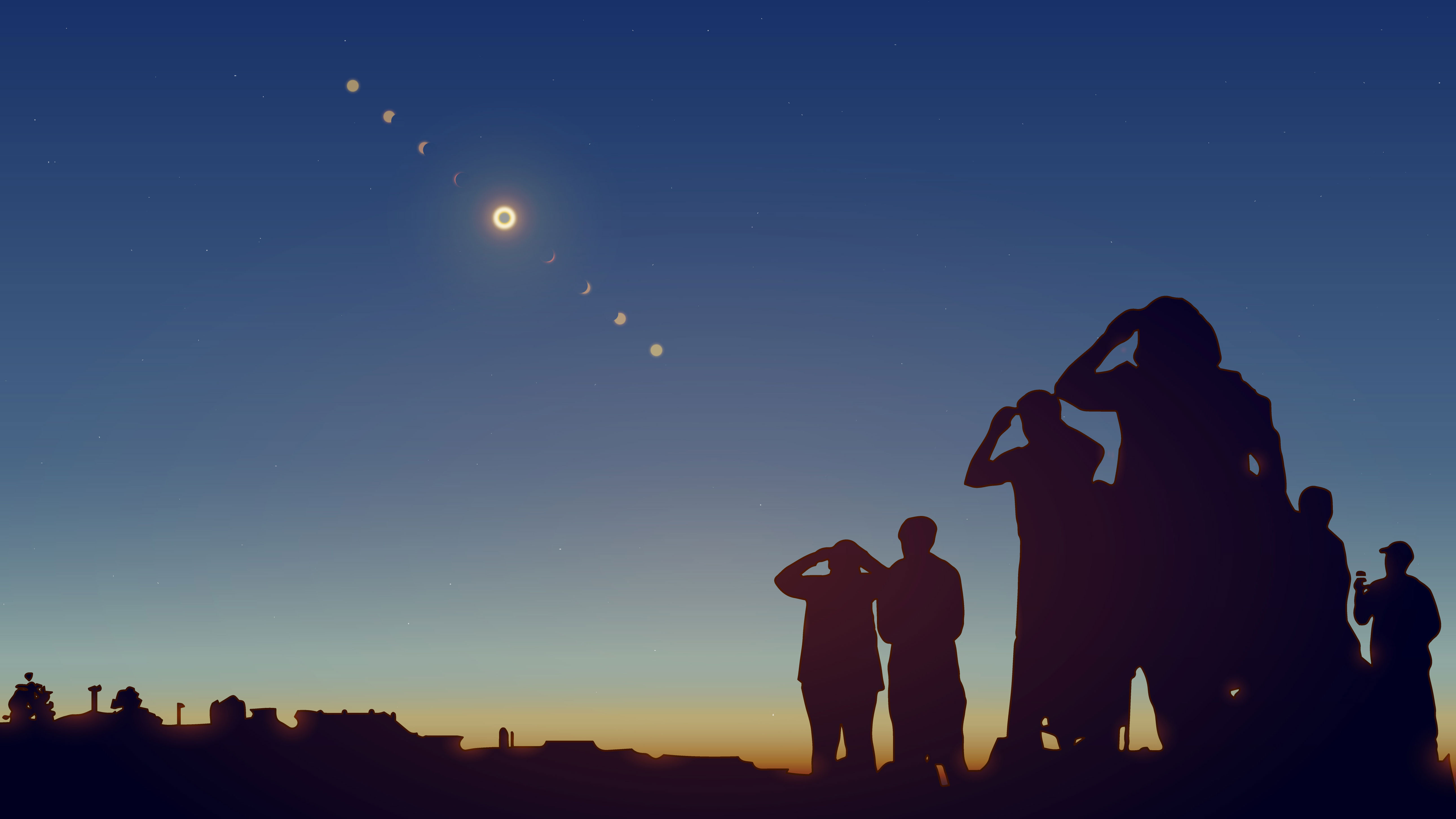My Eyes are on FIRE! Or… Watching the Total Solar Eclipse Safely: Protecting Your Eyesight on April 8th!
(NOTE: The total time in totality in Dallas will be 3 minutes and 51 seconds, one of the longest durations across the country. The entire duration of the complete phase of the eclipse will last for just over 2.5 hours beginning at 12:23:18 PM CDT. The time of totality will begin at 1:40:43 PM CDT.)
The allure of a solar eclipse is undeniable. It's a rare cosmic event- the last total solar eclipse in DFW was in 1878 and the next is not until 2317! People from around the world will be coming to our area just to witness the breathtaking spectacle of the moon passing between the Earth and the sun. However, amidst the excitement, there's often a lingering concern: is it safe to watch a solar eclipse, or will staring at it result in irreparable damage to my eyesight?
Understanding the Risk
The short answer is yes, looking directly at a solar eclipse can cause serious harm to your eyes. The intense light emitted by the sun during an eclipse can overwhelm the retina, leading to permanent damage or even blindness. This occurs because the sun's rays are concentrated into a smaller area, increasing their intensity.
Safe Viewing Methods
Fortunately, there are safe ways to observe a solar eclipse without putting your eyesight at risk. Here are some recommended methods:
- Solar Eclipse Glasses: Specialized solar eclipse glasses are designed to filter out harmful ultraviolet, visible, and infrared light, allowing you to safely view the eclipse. These glasses are equipped with certified solar filters that meet international safety standards. When purchasing eclipse glasses, make sure they have the ISO 12312-2 certification to ensure their effectiveness.
- Pinhole Projectors: A pinhole projector is a simple and inexpensive way to indirectly view the eclipse. To make a pinhole projector, poke a small hole in a piece of cardboard and hold it up to the sun. Allow the sunlight to pass through the pinhole and project an image of the eclipse onto a surface, such as another piece of cardboard or the ground.
- Welder's Glass: Welder's glass with a rating of at least shade 14 can also be used to safely view a solar eclipse. However, it's essential to ensure that the glass is specifically designed for solar viewing and is not scratched or damaged.
- Solar Telescopes and Binoculars: If you're using a telescope or binoculars to view the eclipse, you must attach a solar filter to the front of the instrument. Never look at the sun through an unfiltered telescope or binoculars, as this can cause severe eye damage.
- Livestreams and Broadcasts: If you're unable to obtain proper viewing equipment or if weather conditions prevent you from observing the eclipse in person, consider watching a livestream or broadcast of the event. Many organizations and media outlets provide live coverage of solar eclipses, allowing you to experience the phenomenon safely from the comfort of your home.
While the temptation to gaze directly at a solar eclipse may be strong, it's crucial to prioritize the safety of your eyesight. By following the recommended viewing methods, such as using solar eclipse glasses or creating a pinhole projector, you can enjoy the awe-inspiring beauty of DFW’s total solar eclipse without risking permanent damage to your vision.
Remember to protect your eyes and witness the spectacle responsibly, and remember ER of Texas is always open 24/7 for premier emergency services - here for you day, night…and even when it’s a little of both!
We have 9 facilities spread across the DFW area with average wait times of less than 10 mins that are OPEN 24/7 located in Hurst, Colleyville, Frisco, Highland Village, Hillcrest, Uptown, Little Elm, Mansfield, and Texoma.




.jpg)